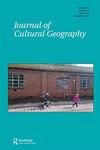“We stand in the Luddite legacy”: tracking patterns of anti-GM protest and crop-trashing in the United Kingdom
IF 0.9
Q3 GEOGRAPHY
引用次数: 1
Abstract
ABSTRACT Concern over the uncertainty associated with genetically modified (GM) products in the late 1990s in the UK led to an extensive anti-GM campaign. Activists adopted a broad array of tactics from conventional protest marches and rallies through to more unconventional and confrontational actions. An important part of the protest repertoire was the physical damage and destruction of GM crops. These were intensified following the decision of the government to license a series of field scale evaluations (FSE) of GM crops intended to determine their potential impact on biodiversity. The aim of the article is to determine why crop trashing events played an important role in opposition to GM in the UK by considering the geographical spread and recognition of such actions. The paper draws on a protest event catalogue of anti-GM protests over the 1996-2016 period to identify their intensity, tactics, and locations. The findings suggest that crop-trashing was primarily adopted in response to the availability of targets. However, it also points to the rural setting as a space in which different norms and histories provide a justification for destructive acts in the face of uncertainty.“我们站在卢德分子的遗产中”:追踪英国反转基因抗议和销毁作物的模式
摘要20世纪90年代末,英国对转基因产品不确定性的担忧引发了一场广泛的反转基因运动。活动人士采取了一系列广泛的策略,从传统的抗议游行和集会到更非传统的对抗行动。抗议活动的一个重要部分是转基因作物的物理破坏和破坏。在政府决定对转基因作物进行一系列田间规模评估(FSE),以确定其对生物多样性的潜在影响后,这些评估得到了加强。这篇文章的目的是通过考虑这种行为的地理分布和认可度,来确定为什么作物垃圾事件在英国反对转基因方面发挥了重要作用。该论文引用了1996-2016年期间反通用汽车抗议活动的抗议活动目录,以确定其强度、策略和地点。研究结果表明,作物垃圾处理主要是为了应对目标的可用性。然而,它也指出,农村环境是一个空间,在这个空间里,不同的规范和历史为面对不确定性的破坏行为提供了理由。
本文章由计算机程序翻译,如有差异,请以英文原文为准。
求助全文
约1分钟内获得全文
求助全文
来源期刊

Journal of Cultural Geography
GEOGRAPHY-
CiteScore
1.70
自引率
22.20%
发文量
15
期刊介绍:
Since 1979 this lively journal has provided an international forum for scholarly research devoted to the spatial aspects of human groups, their activities, associated landscapes, and other cultural phenomena. The journal features high quality articles that are written in an accessible style. With a suite of full-length research articles, interpretive essays, special thematic issues devoted to major topics of interest, and book reviews, the Journal of Cultural Geography remains an indispensable resource both within and beyond the academic community. The journal"s audience includes the well-read general public and specialists from geography, ethnic studies, history, historic preservation.
 求助内容:
求助内容: 应助结果提醒方式:
应助结果提醒方式:


